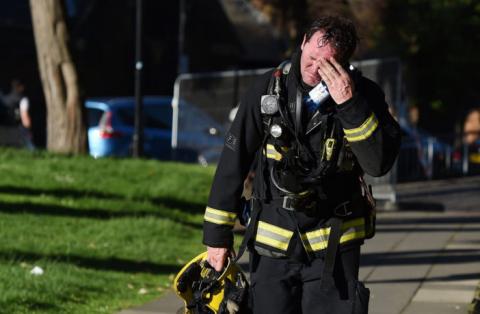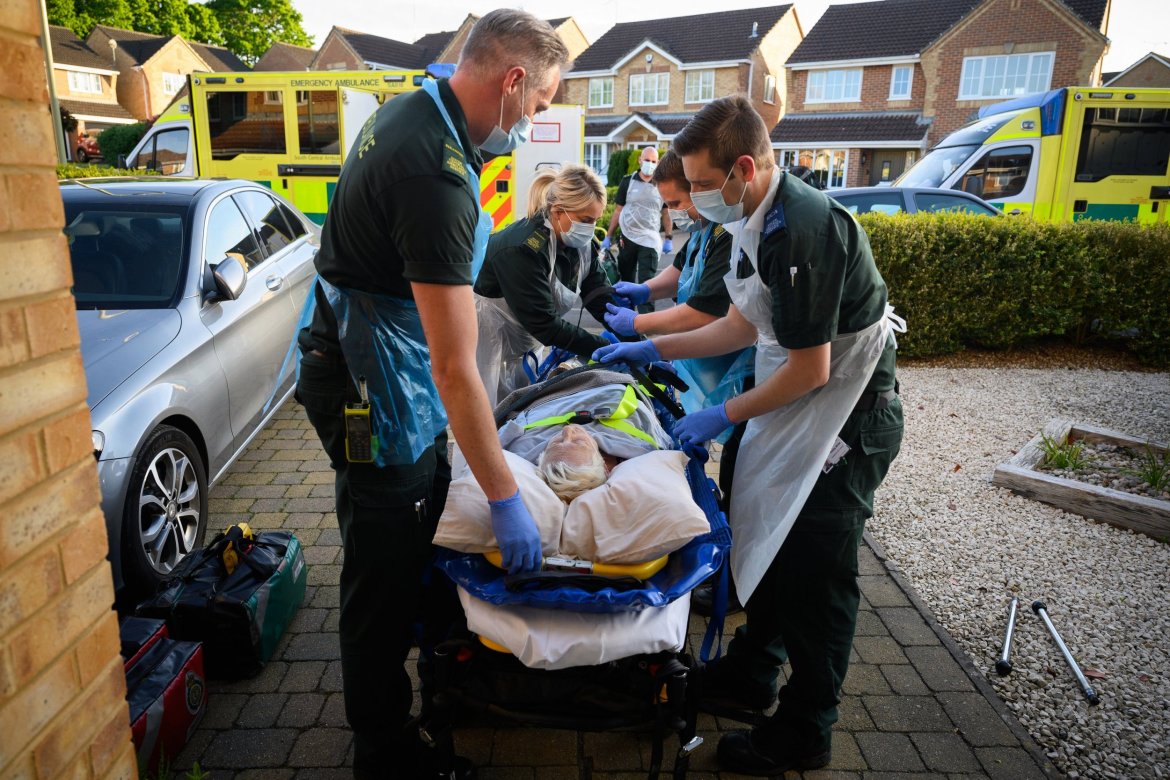New report on mental health and wellbeing of emergency responders

The mental health of emergency responders (ER) could be improved by better integration of wellbeing support into organisations, sharing of “best practice”, a single gateway to help navigate support services, and greater consideration of families’ needs, according to a new report by The Open University and King’s College London researchers.
The report identified a need to better understand several areas of wellbeing in those who respond to emergencies, such as self-harm, suicide, alcohol and substance misuse, sleep, bullying, financial concerns and the positive outcomes of working in this sector.
Many emergency responders directly involved with pandemic
“Emergency responders” is a broad category that includes those in traditional “blue light” emergency services and in volunteer organisations such as Mountain Rescue. The current COVID-19 pandemic has highlighted the potential mental health impact on people working at the front line in emergency situations and many ERs are directly involved with the current crisis.
Conducted by the King’s Centre for Military Health Research (KCMHR) at King’s College London and the Centre for Policing Research and Learning at The Open University, the report collated relevant research conducted prior to the COVID-19 outbreak. The work has been funded by The Royal Foundation of The Duke and Duchess of Cambridge as part of the organisation’s ongoing work to support the emergency responder community.
The project aimed to address the lack of collated data on ERs’ mental health and wellbeing through a systematic review of UK, international academic and non-academic literature. Alongside this, researchers conducted stakeholder interviews, a landscape review of provision of support services, and desktop research to gain insight into the nature and effectiveness of available mental health and wellbeing support for the sector.
A number of terms have been used to describe emergency services and volunteer groups in the past and interviews with stakeholders showed that the term “Emergency Responders” was most beneficial and inclusive when discussing mental health and wellbeing.

Emergency responders include both “blue light” emergency services and others
Previous research identified by the report showed that ERs may experience more mental health problems such as depression, anxiety and PTSD compared to the UK general population. The report also found that organisational stressors, such as excessive workloads and lack of senior support, negatively impacted the mental health and wellbeing of ERs more than the stressors caused by operational incidents.
There was a lack of research on the impact of ER occupations on families in the UK but international research has shown that work and stress related to ER work negatively impact the psychological wellbeing of spouses and children. There were gaps in research on certain areas of mental health such as suicide, self-harm and alcohol misuse. Certain groups of ERs were underrepresented in research such as retirees, Black and Minority Ethnic (BME) groups, Lesbian, Gay, Bisexual, Transgender and Queer (LGBTQ) groups and those who volunteer their time in the emergency services.
According to the report, provision of wellbeing support varied by geographical region and type of emergency service. The researchers found that a lot of work was being done in this area including best practice activities, such as wellbeing support and peer support models, but little had been done to evaluate the effectiveness of wellbeing interventions and programmes.
Barriers and enablers were identified
From the review, the researchers identified several potential barriers and enablers to the implementation of wellbeing support in the sector. At the organisational level, limited funding, austerity, and a mismatch between the corporate vision and individual needs hindered uptake, whilst a culture of openness and buy-in from management helped implementation and uptake of support initiatives. In terms of engagement with mental health support at an individual level, there were barriers around concerns on stigma, confidentiality and career advancement, whilst the presence of emotionally-intelligent managers helped improve engagement of ERs with wellbeing support.
The Principal Investigator at The Open University, Dr Gini Harrison said:
The project has highlighted the intense pressures on emergency responders’ mental health and wellbeing and we believe the recommendations of this new report provide a useful road map of priorities.
By working with excellent partners at the King’s Centre for Military Health Research (KCMHR) and through the Royal Foundation Emergency Responder Stakeholder Group, we have brought together knowledge across the sector, from research, policy and practice for the first time in this report.
It’s hoped that following the Emergency Responders conference at King’s in January 2020, insights from the report can inform future work to benefit the whole of the emergency responder community.
Recommendations and best practice identified
The report’s findings that many of the stressors that impact the mental health of ERs are at the organisational level highlights the need for these stressors to be assessed more systematically. According to the report there is a need for ER organisations to adopt wellbeing support in an integrated fashion, which may include upskilling managers in terms of mental health and wellbeing, promoting and extending support for mental health/wellbeing champions and supporting destigmatising strategies through mental health champions and online video resources.
The researchers identified a number of best practices across the sector and suggested these could be shared more widely through cross-collaboration within the UK but in addition learning could be gained from other countries. Better access to mental health and wellbeing support could be facilitated through a ‘Universal Gateway’ website to help ERs navigate support options that are available. Families of ERs would also benefit from more visible and accessible pathways to support.
There needs to be more attention on specific groups that are not well studied such as retirees, call operators, those from BME and LGBTQ groups, and volunteers working in organisations such as Mountain Rescue and the Royal National Lifeboats Institute. More insight is also needed on the experiences of families of ERs with a focus on research on spouses/partners and children themselves.
More generally there is a need for an alignment of mental health measures used in research so that data can be compared across studies, more representative samples and studies that collect data over time to provide insight into trends and causes.
Alongside this the sector could benefit from a “Research Consortium” where researchers can share their research ideas and resources so as to provide more consolidated insight and evaluations to help improve provision of wellbeing support for this sector.
Read more on the report and its findings and learn about the OU’s Centre for Policing Research and Learning.
